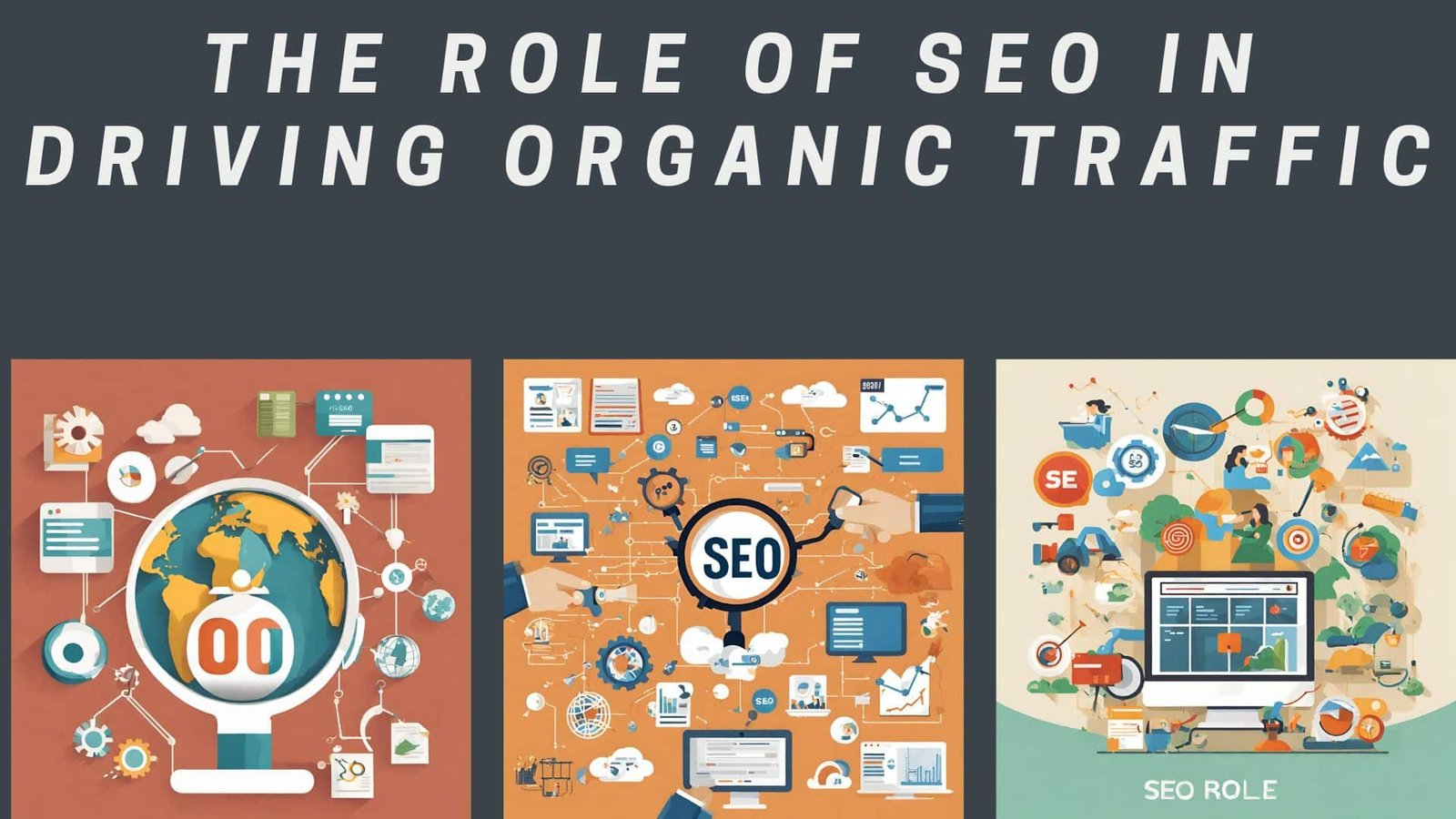We will describe the difference between On Page and Off Page SEO in the easiest way possible and thus would clear up the complete confusion arising about it in itself.
Difference Between On Page and Off Page SEO: Here’s the Explanation
SEO refers to the way to generate traffic toward a site using organic means. It is a very broad subject, but it has been classified into two major categories: On-page and Off-page SEO. They both complement each other for ranking purposes and visitors but in different ways.
The article contains everything that one needs to know about the difference between on page and off page SEO based on their scopes, purposes, components, and importance.
1. What Is On-Page, Off-Page SEO?
- On-Page SEO: On-page SEO can be defined as all optimizations made directly on your site or website. Enhancing the elements over which you exercise absolute control is intended to make your site user-friendly as well as comprehensible to search engine crawlers. Content optimization, HTML source code, and website structure are only a few ways to optimize on-page elements.
- Off-Page SEO: To put it briefly, off-page SEO refers to anything an Internet marketer will do outside the website to improve that site’s search engine ranking- establishing the authority and reputation of the website through getting backlinks from other well-acknowledged websites, through social media, and other external means of promotion.

2. Comparison of On-Page and Off-Page SEO Detail
Both on-page and off-page SEO are important for the entire SEO campaign. Both will elevate a site’s visibility and ranking in search engines (SERPs), but this will happen differently. Brought that way is a comparison of both regarding scope:
2.1. On-Page SEO: Optimizing the Elements within Your Control
In case you were wondering, on-page SEO is everything that has been done inside your own website to gain visibility and ranking in the search engine result pages (SERPs). Also, the goal is to optimize what you completely control to make your site not just visitor-friendly and engaging but also most easily understandable and indexed by crawlers. This wholeness comprises the following core areas:
2.1.1. Content Optimization
This is termed as the very base for on-page search. It covers:
- Keyword research and targeting: Identify the various relevant keywords that are being used by the target audience when looking for products, services, or information that govern your website and incorporate them into your writing naturally.
- Creation of high-quality, relevant content: Creation of valuable, informative, engaging content to meet user needs search. This encompasses blog entries, articles, product descriptions, videos, infographics, and much more. Also, keep in mind that content should be original, well-written, and offer unique value.
- Content structure and formatting: Organizing content by clearly defined headings (H1-H6), using subheadings, bullet points, and short paragraphs to aid in reading and experience. Usually, it describes how search engines understand your content hierarchy.
- Image optimization: Descriptive file names, compressing images for quick loading, and using relevant alt text. Alt text makes it possible for search engines to understand what images are about.

2.1.2. HTML Optimization
HTML optimization speaks about the code optimization of your site:
- Title tags: Craft engaging and accurate title tags which appear in the search results and browser tabs. Furthermore, they should contain relevant keywords and coax the user to click.
- Meta descriptions: A meta-description tells what the content of a particular page is all about, for it comes underneath that title tag in the results. Usually, this hovers just under 160 characters, and though not directly affecting rankings, actually goes farther in clicks thus serving a very indirect ranking role.
2.1.3. URL Optimization
URL optimization denies the use of short, well-describing, keyword-rich URLs. It refuses to use lengthy and complicated URLs crammed with unnecessary characters.
Schema markup: Implementing structured data (schema markup) in order to enable search engines to comprehend the context and purpose of your content may further have the effect of increasing visibility and yielding rich snippets in search results.

2.1.4. Enhance Website Structure and Elevate User Experience
- Site structure: Create a logical structure of your website with intuitive navigation so that it is easy for the user and for search engines to get to the place of information.
- Internal linking: Internal pages of the website should be linked to make their equity and navigation better and provide context to search engines. In addition, internal linking helps to get visitors attention to your website for long time.
- Mobile friendliness: Building a responsive website that can be used on any device, but particularly on mobiles. So, good mobile friendly website ranks higher in google.
- Page speed: All these things come together: The optimization of speed so that your website loads quickly and thus appears to be far more beneficial for the end user and scores better with search engines. Also, do not forget to use some plugins for increasing website page speed.
2.2. Off-Page SEO: Building Authority & Reputation Outside Your Website
All those activities that you do outside your website to boost the rankings of your site in search engines are referred to as off-page SEO efforts. It’s all about building your authority, reputation, and online presence for your website. The steps of off-page optimization are:
2.2.1. Link Building
High-quality backlinks (links from other websites to yours) are a pivotal part of off-page SEO. These backlinks rank as “votes of confidence” by other websites that indicate your website as a reputable source of information to search engines. The effective ways of link building may include:
- Guest blogging: Writing articles for other reputable websites with a backlink to your site.
- Broken link building: Find broken links on other websites and suggest relevant content to replace them.
- Resource link building: Create worthy resources on your site, which will mainly link to other sites.
- Directory submission: It involves submitting your website to all relevant online directories.
- Outreach and relationship building: Catch up with other owners of sites, bloggers, and influencers related to your niche.
2.2.2. Social Media Marketing
Social media marketing involves making a strong presence in digital communities and engaging with the target audience, which can work directly or indirectly in favor of SEO. It shares its content through these media channels to funnel users into its websites for consumption or to increase brand visibility. Social signals can be indirect ranking factors- such as likes, shares, and comments.

2.2.3. Brand Building & Online Reputation Management
Establishing a powerful brand and managing its online reputation would be primary prerequisites for achieving SEO results over time. Above all, it includes:
- Brand mentions: Encouraging mentions of your brand name across the Internet without necessarily linking to it. For example, if your brand name is Touring Diary Adventure, don’t forget to mention on other online platforms.
- Online reviews and testimonials: Increase the likelihood of satisfied customers leaving positive reviews on relevant platforms.
- Public relations and outreach: Try to engage in public relations activities so that the brand can be increased in awareness and earned media coverage.
2.2.4. Local SEO (if applicable)
In case you have a local business, optimizing your Google My Business profile and creating local citations (listings in online directories) are essential requirements for visibility in local searches.
To summarize, on-page SEO refers to optimizing the elements present on your website, while Off-page SEO concerns itself with the creation of authority and reputation for your website over the Internet. Both stand true as the chief pillars of an all-encompassing strategy in the SEO industry since their combined synergistic workings do result in improvement in visibility and organic search rankings for your website.
3. Optimize On-Page SEO or Off-Page SEO Before?
Truthfully, neither holds greater significance than the other. Both are important and complementary components of a successful SEO strategy.
On-page SEO is the foundation. Even the best off-page SEO outreach won’t yield results if the website is not well-optimized. On-page SEO is the foundation; you would not build a roof without a good foundation.
But off-page SEO forms the very base on which all of this stands. It allows you to be part of the on-page efforts by showing the search engines how credible and authoritative your site is. In addition, adding furniture and decorator pieces to your house makes it more functional and more beautiful to live in.
Leaving one or both open may bring havoc to the long-term sustainability results from a search engine that a site might fetch. So, you always need to work for backlinks for your website. In addition, you need to research on competitors backlinks.
4. Conclusion
This is the difference between on page and off page SEO. Both on-page and off-page SEO elements are necessary for attaining higher search engine rankings and generating organic traffic to the site. An entire and comprehensive SEO strategy that caters to the two elements should significantly boost the amount of online visibility attached to your website, hence achieving one’s business goals.
Do remember, SEO is an ongoing process. So, websites have to be optimized indefinitely to remain above the competition when it comes to the continually changing digital terrain.










